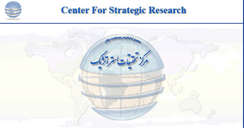Iran Regional Forum No. 2, November 2012
By Clément Therme
At a time when the American and European media are focused on the Iranian narrative regarding the “Arab Spring” in general and the Syrian crisis in particular, it is noteworthy to examine Tehran’s attitude toward Central Asia. In this case, no official public stance has been taken by Iran concerning an “Islamic revival” (Bidari-e eslam) and, more broadly, the revolutionary discourse does not have the same weight in Iran’s foreign policy in regard to Central Asia compared to the United States and the Middle East. In Central Asia, the Islamic Republic plays the role of a status quo power,1 and it is in favor of keeping borders unchanged and finding a juridical solution based on Soviet-era treaties to define a new legal regime for the Caspian Sea. Despite significant differences in Iran’s regional policies, there are very few studies that deal with the role of Iranian think tanks in shaping Tehran’s foreign policy. This dearth in literature regarding what is a potentially important factor explaining the Islamic Republic’s behavior on the international scene deserves to be filled in. In this article, I limit the scope of my analysis to examine Iranian think tanks’ production on Central Asia.
